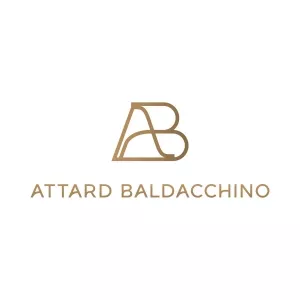The Specialist Employee Initiative (SEI) is a program to attract and retain skilled professionals from third countries to work and live in Malta. The initiative offers an expedited process for obtaining work and residence permits and is designed for professionals with specific qualifications or experiences. This program has been developed as an alternative to the highly successful Key Employee Initiative (KEI).
Key Employee Initiative (KEI)
To be eligible for the KEI, the following criteria must be met:
- Minimum gross basic salary: €35,000 per annum
- Job position: Managerial or highly technical roles
- Qualifications: Duly certified and recognized by the Malta Qualifications Recognition Information Centre (MQRIC)
- The employer submits the completed application through their web portal, attaching all required documents as per the applicable checklist.
- Once the applicant approves the submitted documents, Identity Malta will process the application.
- If the application lacks any required documentation, it will not be processed and could lead to rejection.
- Successful applicants receive an "Approval in Principle" letter with details on finalizing the Single Permit process. In case the application is unsuccessful, a refusal notice will be sent to both the applicant and the employer.
Permit Duration and Renewal
- Successful KEI applicants receive a residence permit valid for one year initially.
- Post the initial year, the permit can be renewed annually so long as the employee continues to meet eligibility criteria, and their employment contract covers the entire validity period.
The above summary provides a quick overview of the Key Employee Initiative. For a comprehensive breakdown of the process and requirements, it is recommended to consult the full KEI guidelines, typically available on official government websites.
Specialist Employee Initiative (SEI)
To be eligible for the SEI, the following criteria must be met:
- Minimum gross basic salary: €25,000 per annum
- Job position: Professional or technical roles
- Qualifications: Minimum Malta Qualifications Framework (MQF) Level 6 or equivalent qualifications directly related to the job
- Experience: In case of qualifications lower than MQF Level 6, a minimum of three (3) years experience in a position directly related to the one offered in Malta
Both initiatives aim to attract top talent to Malta and support the growth of strategic industries. They also enable successful applicants to enjoy a streamlined permit application process, reducing the waiting time for work and residence permits.
1. The employer submits a fully completed application via the web potal with all required documents attached, as per the applicable checklist.
2. The application should be sent to Identità while keeping the third-country national applicant in cc.
3. Identità will process the application once the applicant has approved the submitted documents.
4. Missing or insufficient documentation may lead to application rejection.
5. The €300 application fee is payable during the biometrics stage.
Permit Duration and Renewal
- Successful applicants will be issued a residence permit valid for one year initially.
- The permit may be renewed for up to three years, provided that the employee continues to satisfy the eligibility criteria, and their employment contract covers the entire validity period.
Please note that the processing time for SEI applications is fifteen (15) working days, starting from the date of submission when all the requested documentation outlined in the relevant checklist is complete.
Understanding where you fall with your qualifications!
When it comes to understanding what the qualifications needed are for the Professional, Management and Technical roles Identita' Malta uses the ISCO groupings as explained down below, this is based on the International Standard Classification of Occupations, which is a framework used globally to determine and categorise different jobs into one standard. It serves as a basis for employment statistics, employment policies, and various other purposes. In the context of the Key Employee Initiative (KEI) and Specialist Employee Initiative (SEI) in Malta, the focus is on ISCO groups 1, 2, and 3. These groups represent managerial and highly technical positions.
ISCO Group 1: Managers
Group 1 consists of higher management positions that are responsible for planning, organizing, coordinating, and evaluating the overall functioning of an organization or a department within the organization. These roles require a high level of decision-making, communication, and leadership skills. Some examples of positions that fall under this category include chief executives, operations managers, and finance managers.
ISCO Group 2: Professionals
Group 2 encompasses positions that require a high level of expertise in a specific field. These professionals perform analytical, conceptual, and creative tasks and apply theoretical knowledge, practical skills, and experience to solve complex problems. Examples of professions under this group include engineers, medical practitioners, lawyers, and teachers.
ISCO Group 3: Technicians and Associate Professionals
Group 3 includes positions that support the work of professionals and perform tasks of a technical nature. These roles require a combination of practical and theoretical knowledge to execute tasks accurately and efficiently. Individuals in this group may also oversee the work of other technical staff. Examples of jobs under this category include lab technicians, computer network professionals, and medical imaging technologists.
How SEI and KEI Interwork and Recent Changes
The Specialist Employee Initiative (SEI) and the Key Employee Initiative (KEI) in Malta have evolved to ensure that the process of attracting and retaining top talent from third countries remains effective and responsive to the needs of the Maltese economy.
As a result of these changes, the eligibility criteria and structure of both programs have been strengthened to promote the growth of strategic industries while streamlining the permit application process. This has led to reduced waiting times for work and residence permits, enabling successful applicants to integrate seamlessly into Malta's workforce.
The distinction between SEI and KEI now focuses more explicitly on minimum gross basic salary requirements, with the KEI targeting higher income brackets (€35,000 and above) and managerial and highly technical roles. In contrast, the SEI caters to a broader range of professionals and technicians with a lower minimum gross basic salary of €25,000.
Although both initiatives share a common focus on expertise and qualifications, the improved structure enables better alignment with the specific needs of the Maltese job market. This offers potential candidates more clarity on which program suits their experience, qualifications, and career goals better, while also ensuring that Malta remains an attractive destination for talented professionals from around the globe.
Over time, the interplay between SEI and KEI will continue to evolve as new industry sectors emerge, demands change, and market requirements become increasingly specialized. As a result, both programs will adapt and modify to ensure that they remain up-to-date, relevant, and responsive to Malta's labor market's ongoing needs.
Understanding MQRIC: Recognizing Qualifications in Malta
When planning an educational or job stint in Malta, it is important to understand the recognition process for your academic and vocational qualifications. Here, the Malta Qualifications Recognition Information Centre (MQRIC) plays a crucial role.
MQRIC, housed within the Malta Further & Higher Education Authority (MFHEA), is tasked with recognizing qualifications against the Malta Qualifications Framework (MQF). It provides recognition and comparability advice for both local and international qualifications, leveraging the MQF and the European Qualifications Framework (EQF). Furthermore, it assists in recognizing Maltese qualifications abroad and is part of the ENIC-NARIC Network.
Recognition statements for qualifications can be required for various reasons including:
- Pursuing further studies.
- Applying for a job or promotion.
- Qualification allowance.
- Tax rebate.
- Scholarship schemes.
- Single permit/visa/citizenship with Jobsplus.
Steps to Check If Your Qualification Is Recognized:
Follow these steps to check if your qualification is recognized:
1. Step 1: Consult the Database
MFHEA maintains an online register of accredited institutions and recognized courses. If your qualification is listed in the List of Already Accredited Courses, it is recognized, and there's no need to apply for qualification assessment.
2. Step 2: Check the Certificate
If a qualification is provided by self-accrediting institutions, the MQF level will be mentioned on the certificate. Similarly, other institutions in Malta offering home-grown courses are mandated to mention the MQF level of the qualification on their certificates.
3. Step 3: Submit an Application
If your qualification is not listed under steps 1 and 2 above, you can submit an Application for the Recognition of Qualifications via the online system.
4. Step 4: Opt for Fast Track
For expedited recognition, tick the Fast Track box while entering details of your study program (refer MQRIC Notice 7 for more details).
Note: Statements will be reissued only if the study program has been reviewed in the last 12 months. Programmes not reviewed recently need to be verified anew by putting in a fresh application.
Pricing
The prices for qualification assessment are as follows:
- Qualification found on the database: €10
- Qualification not found on the database AND awarded by Maltese providers: €20
- Qualification not found on the database AND awarded by foreign providers: €50
Advancements by MQRIC, especially the launch of their online system funded by the ESF Project 1.227 'Making Quality Visible', have streamlined recognition making the process accessible from any location.
The content of this article is intended to provide a general guide to the subject matter. Specialist advice should be sought about your specific circumstances.

